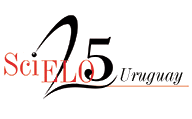Human nature and posthuman rights
Why Francis Fukuyama is right?
DOI:
https://doi.org/10.25185/10.8Keywords:
Francis Fukuyama, Posthuman/posthumanism, Transhumanism, Factor X, Posthuman rightsAbstract
The purpose of the article is to justify Francis Fukuyama’s critique of the bioliberal conception of human being and his proposal to modify (improve) him technologically to turn into a posthuman (with the consequences that this entails, especially with regard to the possible coexistence between humans and posthumans). Fukuyama was, in fact, one of the first and most resounding voices to speak out against the bioliberal utopia. This made him the target of much criticism. This paper will focus on the two arguments that, in my opinion, summarise the diversity of objections raised against Fukuyama, and it will try to show that neither of them succeeds in dismantling his critique. Consequently, it suggests that Fukuyama’s theses on the subject are still valid (at least in its fundamental postulates) and deserve further analysis and development.
Downloads
References
Bostrom, Nick. “The transhumanist FAQ. A General Introduction.” World Transhumanist Association (2003). https://nickbostrom.com/views/transhumanist.pdf
Bostrom, Nick. “In Defense Of Posthuman Dignity.” Bioethics 19, nº 3 (2005): 202-214.
Braidotti, Rosi. The Posthuman. Cambridge: Polity Press Ltd., 2013.
Ferrando, Francesca. “Posthumanism, Transhumanism, Antihumanism, Metahumanism, and New Materialisms. Differences and Relations”. Existenz 8, nº 2 (2013): 26-32.
Ferrando, Francesca. Philosophical posthumanism. London/New York: Bloomsbury, 2019.
Ferry, Luc. La revolución transhumanista. Cómo la tecnomedicina y la uberización del mundo van a transformar nuestras vidas. Madrid: Alianza, 2017.
Fukuyama, Francis. El fin del hombre. Consecuencias de la revolución biotecnológica. Barcelona: Sine Qua Non, 2002.
Fukuyama, Francis. “Transhumanism―the world’s most dangerous idea”. Foreign Policy 144, (September 2004): 42-43.
Hauskeller, Michael. “Utopia”. En Post- and Transhumanism. An Introduction, editado por Robert Ranisch y Stefan L. Sorgner, 101-108. Frankfurt am Main: Peter Lang, 2014.
Jonas, Hans. Mortality and Morality: A Search for Good After Auschwitz, editado por Lawrence Vogel. Evanston, Ill.: Northwestern University Press, 1996.
Miah, Andy. “A Critical History of Posthumanism”. En Medical Enhancement and Posthumanity, editado por Bert Gordijn y Ruth Chadwick, 71-95. Netherlands: Springer, 2008.
Ndahiro, Kennedy. “In Rwanda, We Know All About Dehumanizing Language”. The Atlantic, 13 de abril, 2019. https://www.theatlantic.com/ideas/archive/2019/04/rwanda-shows-how-hateful-speech-leads-violence/587041/
Ranisch, Robert y Sorgner Stefan L. “Introducing Post- and Transhumanism”. En Post- and Transhumanism. An Introduction, editado por Robert Ranisch Robert y Stefan L. Sorgner, 7-27. Frankfurt am Main: Peter Lang, 2014.
Roache, Rebecca y Clarke, Steve. “Bioconservatism, bioliberalism, and the wisdom of reflecting on repugnance”. Monash Bioethics Review 28, nº 1 (2009): 1-21. https://doi.org/10.1007/BF03351306
Rugo, Danielle. “Posthuman”. En Oxford Research Encyclopedia of Literature, (2020). https://doi.org/10.1093/acrefore/9780190201098.013.1136
Savulescu, Julian. “The Human Prejudice and the Moral Status of Enhanced Beings: What Do We Owe the Gods?”. En Human Enhancement, editado por Julian Savulescu y Nick Bostrom, 211-247. Oxford: Oxford University Press, 2009.
Sharon, Tamar. “A cartography of the posthuman: Humanits, non-humanist, and mediated perspectives on emerging biotechnologies”. Krisis 2, (2014): 4-19.
Whitehead, Alfred N. Process and Reality. An Essay in Cosmology. New York/London: The Free Press, 1978 (1929).
Published
How to Cite
Issue
Section
License
Copyright (c) 2021 Leandro Gaitán

This work is licensed under a Creative Commons Attribution 4.0 International License.



























 This work is under a
This work is under a 